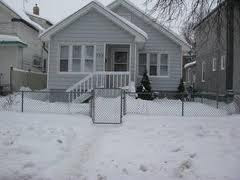Half of Manitobans Not Saving Their Money
 Half of Manitobans Not Saving Their Money
Half of Manitobans Not Saving Their Money
Canadians are not saving enough money and don’t feel optimistic about the future, that’s according to a new study out today. The survey conducted by Royal Bank of Canada says 57 percent of Canadians don’t have savings for a rainy day fund, and those who do, tend to use the funds to pay for every day expenses. “It speaks to the importance of having a plan for a rainy day, for retirement and for some of the unfortunate unforseens in life such as disability.” says financial consultant Leslie Hamilton with Investors Group. The study also found nearly half of people in the prairies aren’t saving for a rainy day fund with 27 per cent saying they dip into their savings for every day spending or emergency. 27 year old Jason Andrews says he’s struggling to save money these days. “It still just seems like you could never really get ahead, it’s tough to save,” said Andrews. Andrews who recently bought Winnipeg Jets season tickets says he now plans on cutting back on expenses he doesn’t really need. “I’d say anything on my car would be too much, buying a TV big screen just anything that I would have to use my credit card,” said Andrews.
Some say inflation is also hurting consumers but the survey also found Manitobans are also optimistic about the future and plan on reducing their debt this year. “Consumers here in Saskatchewan and Manitoba are concentrating on very positive ways to help mange their debts,” said Rob Johnston, regional president for RBC. University of Winnipeg student Brittany Thiessen isn’t hopeful she’ll be able to save until she pays off her debt. “Well a lot of my money goes towards paying tuition and books are also very expensive and then once you pay for that you really don’t’ have much left over,” said Thiessen.
Most British Columbians Put Savings on Hold to Pay Down ExpensesNearly six in 10 British Columbians – 58 per cent — are not saving for a rainy-day fund, while 32 per cent are using savings for daily expenses or emergencies, according to the October RBC Canadian Consumer Outlook Index released Wednesday. While the B.C. numbers are slightly higher than the national average — 57 per cent and 30 per cent, respectively — British Columbians also intend to take action in managing their finances in the coming year, with 28 per cent planning to reduce debt, 30 per cent planning to spend less, 19 per cent hoping to save or invest more and 24 per cent planning to do all three. The report found that 58 per cent of B.C. consumers have delayed making a major purchase such as a car, household appliances or vacation because of the economy.














































